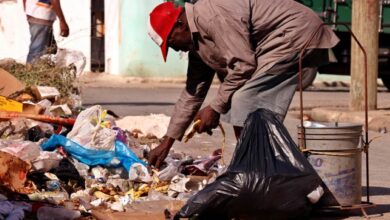Nicaragua opposes receiving the OAS commission
For the Nicaraguan government, the OAS should keep away from the internal crisis. Once again the organism is weak facing a crisis in the region

The Organization of American States (OAS) approved on Thursday, August 2, the creation of a commission for Nicaragua, which was requested by a group of countries, which included Chile, Colombia, Argentina, Honduras and Peru, which worry about the situation in Nicaragua. The role of this commission is to support a national dialogue that lead to a peaceful and sustainable solution for the Central American country that has already completed more than three months in crisis. Nicaragua did not experience such a violent situation since the Sandinista revolution of the 1980s.
In order for the Permanent Council of the OAS to approve the establishment of thecommission, more than 18 votes were necessary. Thus, the final result was: 20 votes in favor of the initiative, 4 votes against, 8 abstentions and 2 absences. In the document that summarize the vote, the request of all the countries of the regional bloc is decided: the way out of the crisis.
Read also: Everything you need to know to understand the uncontrollable crisis in Nicaragua
Objection by Nicaragua
According to the act, the objective of this working group is "to contribute to the search for peaceful and sustainable solutions to the situation that is registered in Nicaragua, making use of consultations to the Nicaraguan Government", thus, the Central American country will have a primary role in what the nascent commission does. However, the Daniel Ortega government did not welcome the creation of such a commission. Even before the approval of the resolution was carried out, the Nicaraguan chancellor, Denis Moncada, in a press conference, assured that the country would not receive any group organized by the OAS.
Ortega, in an interview with the newspaper GrayzoneProject, assured that Nicaragua is not yet defeated in the OAS and that it will continue fighting so that the Agency does not interfere in the internal affairs of the country. In another interview for the Russian network RT, the Nicaraguan leader said "there are enough problems in each of these countries that they want to interfere in the situation of our country (…) they have to respect Nicaragua."
What will be the true role of the OAS in the face of the crisis?
The president of the Higher Council of Private Enterprise (COSEP), José Adán Aguerrí, and who is a member of the Civic Alliance, a party opposed to the government, assured ParaPastran that, although the OAS can invoke the Inter-American Democratic Charter, it can not apply sanctions that are really the ones that can weaken the government. "These will continue to come through measures that, according to information we have, will continue to be taken mainly by the government of the United States." For Aguerrí despite the little effectiveness that the OAS can have in the face of the crisis, as it has shown with the crisis of Venezuela, if the lifting of the protest voice of the continent that disapproves the situations within the countries is fundamental.
The voice of protest that rises, whether through diplomatic channels invoking the Democratic Charter, reveals the discontent of the regional bloc in the face of an abnormal situation in the region. Although this measure will not change the government's opinion, if it leaves it in a situation of isolation that can finally have future repercussions, such as the lack of support for initiatives.
Although the OAS is the main political forum in the region, its role facing crises throughout its history has been more to bring together the entire continent and show its position. In the case of Nicaragua, it is already the second initiative that is taken and even then, there have been no results. Comparing the situation in Venezuela, the OAS could expel the country from the agency, without this having a greater impact for the protests or for the government. Actually if a country, in this case Nicaragua, wants to make effective use of the OAS and its experts, it must work hand in hand and be aligned with the objectives of the entity, only then would there be legitimacy and a more concrete path.
In the same document of creation of the commission it is established that it will give a monthly report of its activities in the country, as well as the progress and advance, therefore, its action will be only seen on the paper.
LatinAmerican Post | Carlos Eduardo Gómez





